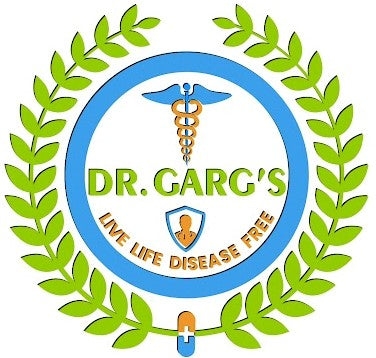Allergy
Scientific Allergy Treatment : A Natural Approach to Healing

Introduction:
Allergies affect millions of people worldwide, causing a range of uncomfortable symptoms such as sneezing, itching, congestion, and skin rashes. While conventional medicine offers various treatments for allergies, an increasing number of individuals are turning to homeopathy for a natural and holistic approach to allergy relief. Homeopathy focuses on stimulating the body's innate healing abilities and addressing the underlying causes of allergies rather than just suppressing symptoms. In this blog post, we will explore the principles of homeopathy and how it can effectively treat allergies.
Understanding Homeopathy:
Homeopathy is a holistic system of medicine founded by Samuel Hahnemann in the late 18th century. It is based on two fundamental principles: "like cures like" and the "law of minimum dose."
According to the principle of "like cures like," a substance that can produce symptoms in a healthy person can be used to treat similar symptoms in a sick person. The "law of minimum dose" states that the more diluted a substance is, the more potent it becomes.
Homeopathic Approach to Allergy Treatment:
In homeopathy, allergies are seen as an imbalance in the body's vital force or life energy. Homeopathic remedies are selected based on the individual's unique symptoms, taking into account their physical, emotional, and mental well-being. The goal is to stimulate the body's own healing mechanism and restore overall balance.
The treatment begins with a thorough examination by a qualified homeopath, who will assess the patient's symptoms, medical history, and lifestyle factors. The homeopath will then prescribe a highly individualized remedy tailored to the specific needs of the person.
Homeopathic remedies are derived from natural substances such as plants and minerals. These substances undergo a process of potentization, where they are diluted and succussed (shaken vigorously). This process is believed to enhance the healing properties of the remedies while minimizing any potential side effects.

Benefits of Homeopathic Treatment for Allergies:
- Holistic Approach: Homeopathy takes into account the physical, emotional, and mental aspects of an individual, providing a comprehensive treatment plan that addresses the underlying causes of allergies.
- Personalized Treatment: Each person's symptoms and experiences are unique, and homeopathy focuses on individualizing treatment based on those specific symptoms.
- Gentle and Safe: Homeopathic remedies are highly diluted, making them safe for all age groups, including infants, children, and pregnant women. They are non-toxic and non-addictive, with no known drug interactions.
- Long-term Relief: Homeopathy aims to strengthen the body's immune system, providing long-term relief from allergies rather than just suppressing symptoms temporarily.
Common Homeopathic Remedies for Allergies:
Homeopathic remedies for allergies can vary depending on the individual's symptoms and the specific allergen. Some commonly used remedies for different types of allergies include:
- Allium cepa: For allergic rhinitis with watery discharge from the nose and eyes, along with frequent sneezing.
- Natrum muriaticum: Useful for allergies triggered by exposure to dust, pollen, or certain foods. Symptoms may include sneezing, itching, and watery discharge.
- Arsenicum album: Effective for allergies accompanied by respiratory symptoms, such as wheezing, coughing, and shortness of breath.
- Pulsatilla: Suitable for individuals with allergies characterized by thick, yellowish nasal discharge and a preference for open air.
Conclusion:
Homeopathy, as a natural and holistic approach to allergy treatment, holds significant promise for individuals seeking a gentle and personalized way to manage their allergies. By considering the unique symptoms, emotional state, and overall health of each individual, homeopathy aims to restore balance and stimulate the body's innate healing abilities. Unlike conventional treatments that often focus on symptom suppression, homeopathy seeks to address the root causes of allergies, leading to long-term relief.
One of the key advantages of homeopathy is its safety and suitability for individuals of all ages, including infants, children, and pregnant women. The highly diluted and non-toxic nature of homeopathic remedies minimizes the risk of adverse side effects and drug interactions. Furthermore, homeopathy offers a holistic approach, recognizing the interconnectedness of the physical, emotional, and mental aspects of an individual's health. This comprehensive perspective allows for a more thorough and personalized treatment plan.
While homeopathy has shown effectiveness in managing allergies, it is essential to Dr. Garg’s, a qualified and experienced homeopath to ensure proper diagnosis and prescription of remedies. Homeopathic remedies are derived from natural substances and undergo a process of potentization, which is believed to enhance their healing properties.
In conclusion, homeopathy provides an alternative option for individuals seeking a natural and individualized approach to allergy treatment. By stimulating the body's own healing mechanism, homeopathy aims to bring about lasting relief and improved overall well-being. If you are considering homeopathy for your allergies, it is advisable to consult with a professional homeopath to receive personalized guidance and treatment. Remember, each person's journey to allergy management is unique, and finding the right approach may require patience and open communication with your healthcare provider.
